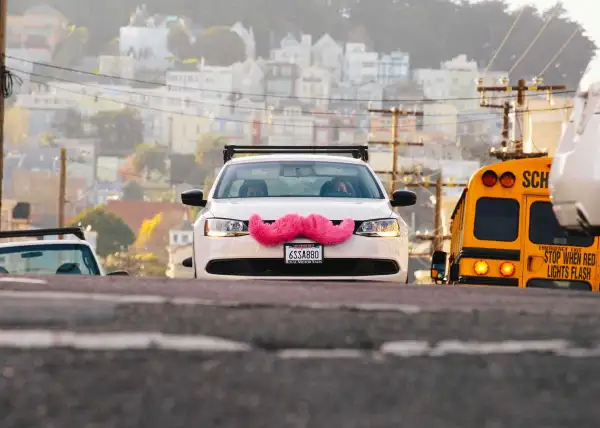7 Cities Where the Sharing Economy Is Freshly Under Attack

Big cities such as San Francisco and New York have been confronting the unusual tax and regulatory conundrums posed by sharing economy businesses like Lyft, Uber, and Airbnb for years. Now it's Grand Rapids' turn.
As rideshare services like Uber and Lyft expand rapidly around the globe, and as short-term rental operations like airbnb grow to the point of being genuine competitors to hotels, local officials don't quite know what to make of them—and the kneejerk reaction of regulators is often to side with the tradition businesses these sharing economy services intend to disrupt.
It hasn't helped that sharing economy businesses have been featured in a string of ugly incidents lately. There was the "XXX Freak Fest" orgy that took place when an unsuspecting tenant rented out his New York City apartment on airbnb last Month. Then there was an Uber driver accused of assault in Oklahoma City, and another Uber driver in San Francisco who was charged with hitting a passenger, and who was found to have convictions for felony drug dealing and misdemeanor battery, despite being subjected to Uber's background check.
What's more, no fewer than 14 states have issued warnings--fairly vague, sometimes misleading, but still scary warnings--about the insurance risks in driving or being a passenger in rideshare operations. The companies whose business models are being threatened by the sharing economy are taking action too: In Las Vegas, for instance, a local cab company posted a memo warning that it would terminate any "driver that picks up a passenger using an Uber, Lyft or Sidecar application" in a company taxi or limo. And even cities that seem more open to rideshare businesses sometimes aren't entirely on board with how these tech companies operate. The Times-Picayune reported that the New Orleans city council is discussing new regulations that would allow Uber's ridesharing service, but would keep certain taxi rules--such as $25 minimums for luxury sedan rides--that defy "Uber's insistence on open market pricing."
As for individual cities in the U.S. and Europe that are stepping up efforts to rein in or ban sharing economy businesses entirely, here are seven hot spots:
Albuquerque, New Mexico
In late May, the New Mexico Public Regulation Commission voted unanimously to order the ridesharing service Lyft to cease operations in the state. Why? The same reason most often cited against ridesharing companies: They're accused of being commercial taxi services whose drivers don't have the appropriate licenses and certificates, and who haven't paid the same fees as taxis. The commission warned Lyft and its drivers that each violation is subjected to a fine up to $10,000.
Barcelona, Spain
After being pressured by taxi companies and hotels, among others, officials in Barcelona are trying to crack down on Uber and airbnb and other sharing economy businesses, with tough fines for unlicensed drivers and a temporary freeze on licenses for owners who want to rent apartments as tourist lodging.
Brussels, Belgium
Uber launched in Brussels in February, and in April, officials banned the service in the city, threatening to hit drivers with a €10,000 fine for picking up a passenger via the app.
Buffalo, New York
A month after Lyft introduced its rideshare service in Buffalo in late April, the city's director of permits and inspections recommended that police issue summonses to Lyft drivers, who he has determined to be the equivalent of unlicensed livery cab drivers. He also threatened that cars used in rideshare operations could be impounded.
Grand Rapids, Michigan
Strict new regulations are being proposed for owners who want to rent rooms via airbnb or other short-term services. If accepted, a homeowner would have to pay $291 for a license, the home must be owner-occupied in order to advertise room rentals (i.e., no vacation rentals), and only one room in the home can be rented at a time. Also, the city would grant no more than 200 licenses, and owners would have to notify all neighbors within 300 feet of the property about the rental situation. As tough as these rules seem, they could have been worse: A year ago, Grand Rapids was suggesting that homeowners would have to pay $2,000 for a license to advertise and rent via airbnb.
Kansas City, Missouri
Police began issuing tickets to Lyft drivers in Kansas City soon after the service was launched in late April. City officials had deemed that the rideshare service was illegal because drivers hadn't gone through the training and certification required of taxi drivers. After some legal maneuvering, Lyft is still in action in the city, and a lengthy court battle is expected before the situation is settled.
Malibu, California
The Malibu city council recent voted in favor of issuing subpoenas to over 60 short-term lodging rental websites, including airbnb, according to the Los Angeles Times. There are hundreds of ads for short-term vacation rentals in Malibu, but only around 50 are officially registered with the city and pay the same 12% tax that hotels pay. Officials want to make sure that the city isn't missing out on hundreds of thousands of dollars in taxes from other rentals. They're also hoping to crack down on the "party house" atmosphere in neighborhoods that have become popular for vacation rentals.
